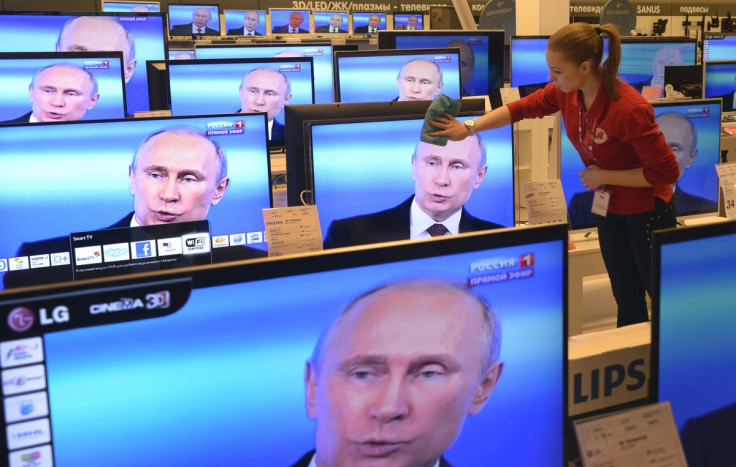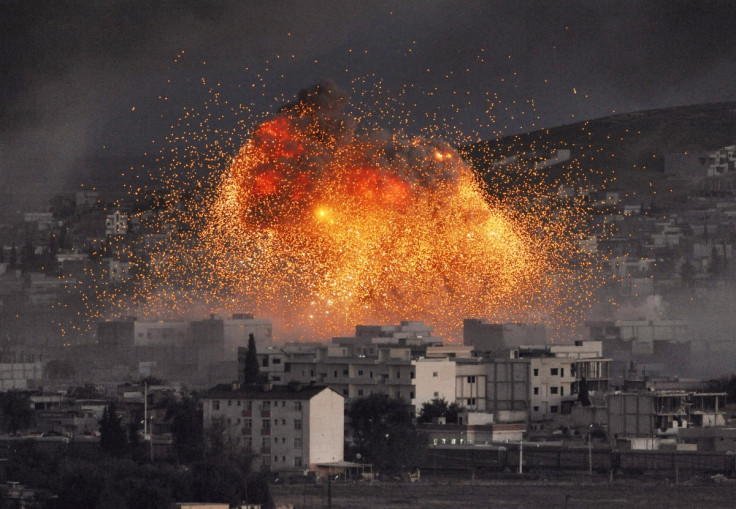Simon Heffer: Vladimir Putin shows up the West once more with Russia military intervention in Syria
The West's dealings with Vladimir Putin always seem to leave Russia with the advantage, even when it appears to be applying sanctions and strictures to him. Unconstrained by the normal rules of international relations, and acting now in isolation, Russia does pretty much as it likes.
Its latest intervention in Syria, which could have a profound effect on the activities and influence of Islamic State (Isis) there, is indicative of this outlook. This became clear when Putin visited the United Nations in New York recently, when it became apparent that, after years of stand-off with Barack Obama, he has managed to force the US president to take him seriously, and to rethink exactly what America proposes to do in the Middle East.

Russia has a long-standing and genuine fear of Islamic extremism. Its difficulties in Chechnya since the break-up of the Soviet Union have only hardened its outlook. It will deploy the firepower it has stationed in Syria against IS with ruthlessness and without any regard for the views of the international community – not that there is much chance of rebuke against any power that seeks to destroy a movement that has set new standards for barbarism.
Russia will especially not care that, in its attempts to restore order in Syria, it will have to ally itself in some measure with the despised Bashar al-Assad.
Despised, that is, by most countries, but not Russia: Assad's methods are the sort that men like Putin understand, and would rather like to have the chance to use themselves. Russia remains a state in which the restoration and maintenance of order are paramount considerations, and whatever methods are required to achieve this are regarded as acceptable. So Russia, and Putin in particular, has long felt Assad's pain, and sees no moral problem with the Syrian leader.
But there is another consideration, of which Putin will be acutely aware. While countries such as Britain expend much rhetoric about the atrocities of IS, their dwindling armed forces and divided public opinion mean there is very little they can actually do about it. Britain has, in the past few weeks, deployed RAF drones to kill particular British citizens working for IS: but the forces' firepower goes little beyond that, and some sorties by spy planes flown from RAF Akrotiri in Cyprus.
Parliament has yet to agree to the RAF flying combat missions against IS, and it is far from certain that it will do so. Whereas when Putin's Russia finds what IS is doing unacceptable, it has the muscle and the will to act. That, as well as cocking a snook at countries that have imposed sanctions upon it for its behaviour in Ukraine, is why Russia's new intervention in Syria is of such moment.

It illustrates the price that Britain and other nations have paid for choosing to fund a welfare state rather than proper defence. It means Britain, and other equally impotent so-called Western "powers", must stand by and watch Russia multiply its influence in the Middle East.
In the event that Russia's firepower knocks holes in IS, and allows a resurgence of Assad, it would, paradoxically, be a violent blow to European foreign policy. Putin takes the view that shoring up the old dictators of the era before the Arab Spring is what's best for the region, and it is difficult to make a strategic (as opposed to a human rights) case against him. When one looks at what has become of Libya and Iraq since dictators whom the West did not like were toppled, one can see the dangers of trying to impose Western values on these despotisms.
And it is not just that those countries have descended into chaos since their unpleasant dictators ran them. The fall of Gaddafi has made Libya a transit camp for Africans – almost all economic migrants rather than refugees fleeing for their lives – who wish to get to Europe, with appalling consequences for those who have drowned by the boatload in the Mediterranean.
The fall of Saddam Hussein created the vacuum into which IS has poured. And the weakness of Assad – who, let it not be forgotten, David Cameron wanted to grind into the dust two years ago – has allowed IS to spread its tentacles further West, and to risk becoming a dominant, settled power in that region, imperiling other countries in the area.
Just because Russia has mighty armaments and IS is a rebel army does not mean the result of Putin's intervention is a foregone conclusion: remember what the Americans tried to do in Vietnam and where that ended. But Putin will feel no restraint on him or his forces in causing as much devastation behind IS lines as possible. He will know many in the world will cheer him on. And he knows that if he prevails, his own – and his country's – reputation will be seriously enhanced. What he is doing in Syria serves his self-interest in many ways, right around the world.
Dr Simon Heffer is a British commentator and author who has written columns for The Daily Mail, The Daily Telegraph, The Spectator and The New Statesman. He is the biographer of Enoch Powell, Thomas Carlyle and Ralph Vaughan Williams and recently published High Minds: The Victorians And The Birth Of Modern Britain.
© Copyright IBTimes 2025. All rights reserved.






















